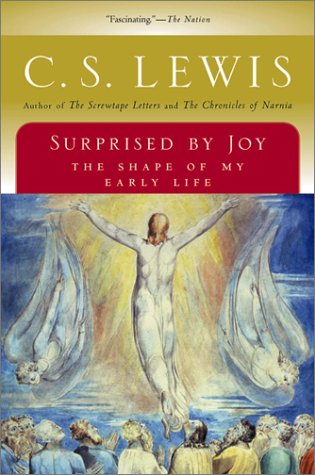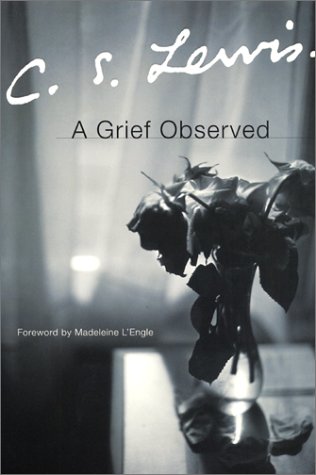We may give our human loves the same unconditional allegiance which we owe only to God. Then they become gods: then they become demons. Then they will destroy us, and also themselves. For natural loves that are allowed to become gods to not remain loves. They are still called so, but can become in fact complicated forms of hatred.This reminds me very much of the woman in The Great Divorce, who chose to love her son above God and so corrupted this love. Actually there are a lot of characters in The Great Divorce who would choose hell over Heaven because of misplaced love.
Lewis defines three types of love: need-, gift-, and appreciative.
Need-love cries to God from our poverty; Gift-love longs to serve, or even to suffer for, God; Appreciative love says: "We give thanks to thee for thy great glory." Need-love says of a woman "I cannot live without her"; Gift-love longs to give her happiness, comfort, protection — if possible, wealth; Appreciative love gazes and holds its breath and is silent, rejoices that such a wonder should exist even if not for him, will not be wholly dejected by losing her, would rather have it so than never to have seen her at all.He does not deny the risks of loving purely, but rather embraces them as part of God's plan for us.
To love at all is to be vulnerable. Love anything, and your heart will certainly be wrung and possibly broken. If you want to make sure of keeping it intact, you must give your heart to no one. Lock it up safe in the casket of your selfishness. But in that casket- safe, dark, motionless, airless--it will change. It will not be broken; it will become unbreakable, impenetrable, irredeemable. The alternative to tragedy, or at least to the risk of tragedy, is damnation. The only place outside heaven where you can be perfectly safe from all the dangers and perturbations of love is hell.
We shall draw nearer to God, not by trying to avoid the sufferings inherent in all loves, but by accepting them and offering them to Him; throwing away all defensive armour. If our hearts need to be broken, and if He chooses this as the way in which they should break, so be it.
It is probably impossible to love any human being simply "too much." We may love him too much in proportion to our love for God; but it is the smallness of our love for God, not the greatness of our love for the man, the constitues the inordinacy.
In everyone, and of course in ourselves, there is that which requires forbearance, tolerance, forgiveness. The necessity of practising these virtues first sets us, forces us, upon the attempt to turn - more strictly, to let God turn - our love into Charity. These frets and rubs are beneficial. It may even be that where there are fewest of them the conversion of natural love is most difficult... In this way also it may be hard for "the rich" to enter the Kingdom.And finally he adresses how we are to love God:
God enables men to have a Gift-love towards Himself. There is of course a sense in which no one can give to God anything which is not already His; and if it is already His, what have you given? But since it is only too obvious that we can withhold ourselves, our wills and hearts, from God, we can in that sense, also give them. What is His by right and would not exist for a moment if it ceased to be His... He has nevertheless made ours in such a way that we can freely offer it back to Him. "Our wills are ours to make them Thine." And as all Christians know there is another way of giving to God; every stranger who we feed or clothe is Christ. And this apparently is Gift-love to God whether we know it or not. Love Himself can work in those who know nothing of Him.From Mere Christianity we learned that "The submission of one’s will is really the only uniquely personal thing we have to place on God’s altar. The many other things we “give,” brothers and sisters, are actually the things He has already given or loaned to us. However, when you and I finally submit ourselves, by letting our individual wills be swallowed up in God’s will, then we are really giving something to Him! It is the only possession which is truly ours to give!" [Neal A. Maxwell]
In The Last Battle we learned that all good things are the Lord's, no matter whose name they are done in. We don't have to know God to love Him. {This idea is also explored in The Great Divorce.}














No comments:
Post a Comment